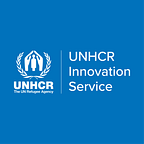On the way to financial inclusion
Rethinking (cash) assistance in Meheba camp, Zambia
By Veena Krishnamoorthy, Cash Based Intervention Officer & Giulia Balestra, Associate Innovation Officer, UNHCR
It’s six in the evening and Meheba is wrapped in the dark blanket of night. Spread over 720 square kilometres, in the North-Western Province of Zambia, Meheba is one of the oldest refugee settlements in Africa. Established in 1971, today it hosts over 22,000 refugees from Angola, Burundi, the Democratic Republic of Congo, Rwanda, Somalia, and Uganda.
In such a far-away place and with the little infrastructure available, the nights come early and bring a temporary, sometimes illusory, sense of quiet. Under flickering light, we sit with Sarah, a single mother with four children, and a refugee from Burundi who has lived in Meheba since 2014. She was forced to flee from her home due to ethnic conflict and arrived in Zambia carrying only what mattered: her children, great perseverance and determination. Sarah adjusted to Meheba quickly, but often refers to her other life back in Burundi as the “real life”.
The evening keeps creating space for an intimate conversation, one where hopes and fears exist side-by-side and the past and future are loosely tied by what little certainty there is in the present. Meheba has seen a lot of changes: after the initial influx of refugees, in recent years over 10,000 Angolans and Rwandans were able to return to their homes and start afresh. The changes, as the crisis became a protracted situation, were reflected in the type of assistance offered to refugees: fewer resources and the need to deliver them more efficiently.
Sarah remembers everything well: when food distribution became cash assistance, and when cash assistance was no longer enough for her family and she started working and keeping a small kitchen garden to have some fresh produce. No doubt cash assistance increased freedom of choice and a sense of dignity, but it also came with challenges, Sarah says. How is assistance delivered? When and where? How to keep your savings safe without a bank account? “We don’t really have a choice,” she explains. “I have no documents, no bank or mobile account. I thought that hiding my money was the best option. I put it in a plastic bag and dug a hole in the ground”.
She recalls how one day she dug up the plastic cover and discovered that the cover had a tear and that little was left of her money, ruined by the humid soil.
A design challenge?
Sarah’s challenges weren’t unique to her. Many refugees in Meheba were in a similar situation — one that was calling for change.
In an effort to improve assistance to refugees in Zambia, the UN Refugee Agency (UNHCR) partnered with MicroSave, a consulting company specialized in social, economic and financial inclusion and digital solutions. They started out with one big question: “How might we improve cash assistance for refugees in Meheba to make it more effective, efficient, and impactful?”
The MicroSave team spent significant time in Meheba and despite their technical and digital expertise, what they did was immersing themselves in the new context and focusing on understanding the community and their day-to-day lives. That’s the idea of human-centered design: an approach that puts humans and their perspectives first and keeps them at the centre throughout the problem-solving process.
Instead of an easy and fast, pre-made solution that could stick, MicroSave and UNHCR decided to go for the longer and perhaps more scenic way: they stepped out of their own roles and perspectives, asked questions and listened to what people had to say. The more they talked with refugees the more they had questions instead of answers, but the many pain points surrounding assistance to refugees were becoming clearer.
From the refugees perspective, the recurring issues around assistance were the following:
- Limited information on cash assistance programs and a clear lack of understanding regarding eligibility for cash assistance, dates of payment, modalities, and duration of eligibility for assistance;
- Timing and delays in disbursement reported delays in aid distribution and fear of cash running out;
- Lack of identity documents that could open up opportunities for different modalities of disbursement and access to financial services;
- Uncertainty around support and fear of missing out on assistance.
On the other side, from a service delivery point of view, major issues included:
- Limited financial education among refugees and the need to ensure their protection from potential fraud;
- The remoteness of location and infrastructure constraints hampering a more efficient delivery of assistance to refugees;
- Need for timely reporting on aid delivery often delayed because of lengthy manual processes;
- Limited accountability to refugees due to the manual verification process as well as delays in disbursement.
A long way to financial inclusion
Uncertainty and the lack of access to financial services for refugees in Zambia seemed to have a significant impact on the lives of individuals, but also on the economy of Meheba, limiting business opportunities and entrepreneurial or income-generating activities.
The challenge — improving cash assistance for refugees in Meheba and making it more effective, efficient, and impactful — was large and complex and financial inclusion seemed to be a far-off destination. It was only the beginning of the journey, however, the time spent in Meheba was crucial to define the challenge ahead, understand the problem in its complexity and entirety and take MicroSave and UNHCR one step closer to rethinking how to provide better service to refugee communities.
In the next chapter of this story, we will look at how this unfolded.
